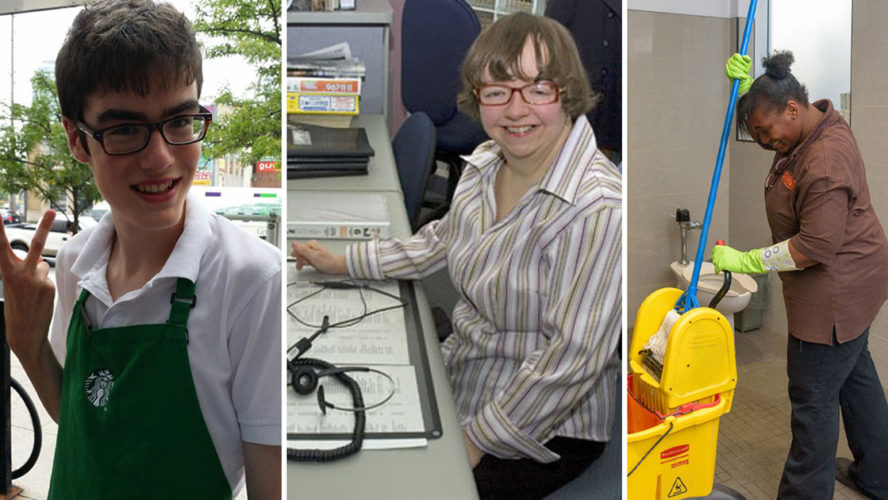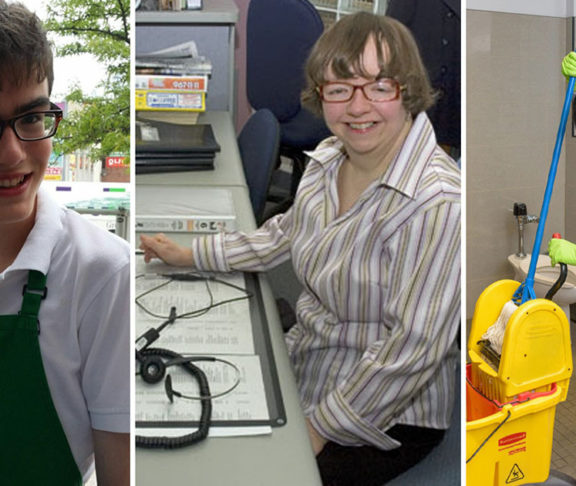
Shineeca McLeod
Cleaner, Sunrise Janitorial Services
Providing meaningful work to individuals with intellectual disabilities builds a stronger community and workspace for all.
Having an intellectual disability does not prevent people from living healthy lives. The stigma surrounding the employability of people with these conditions limits their ability and potential to succeed in society and be part of communities.
There are approximately 645,000 Canadians with disabilities. Many of whom are unemployed or underemployed. Although workforces are more sensitive in the present to creating inclusive cultures, there’s still a lot of work to be done in shifting the perspective of how organizations view people with an intellectual disability.
Supporting individuals with an intellectual disability
Like everyone else, people with an intellectual disability have emotions, aspirations, and the desire to live fulfilling lives. Community Living Toronto (CLTO) has supported people with an intellectual disability for 74 years and works with over 4,000 people and their families in over 80 locations across Toronto.
Shineeca McLeod is one of the people that CLTO has helped through employment support to be financially independent and thrive in a community. She worked for over six years as a cleaner for Sunrise Janitorial Services. Her job requires organization, planning, scheduling, decision-making abilities, and knowledge of chemical compounds to mix the appropriate products for cleaning. As Shineeca demonstrated leadership skills, she advanced into a role as Crew Lead, where she trains new employees. Shineeca enjoys her job because it is multi-faceted and allows her to bring positivity into people’s days.
Having an intellectual disability doesn’t make me any different, and I’m not ashamed of having it
Shineeca McLeod
Shineeca shares that employers who want to create an inclusive workspace must be open-minded, learn to accommodate various learning and communication styles, and make an effort to understand what opportunities best suit them.
CLTO’s recruitment platform for hiring individuals with an intellectual disability
After long-standing work facilitating the hiring process between people with an intellectual disability and organizations that want to foster an inclusive workspace, CLTO received funding from the Government of Ontario to launch MyJobMatch. This recruitment platform is built from the knowledge and best practices CLTO developed over their years of service. The database has over 200 active employers ready to provide meaningful work.


